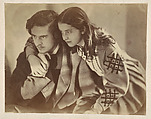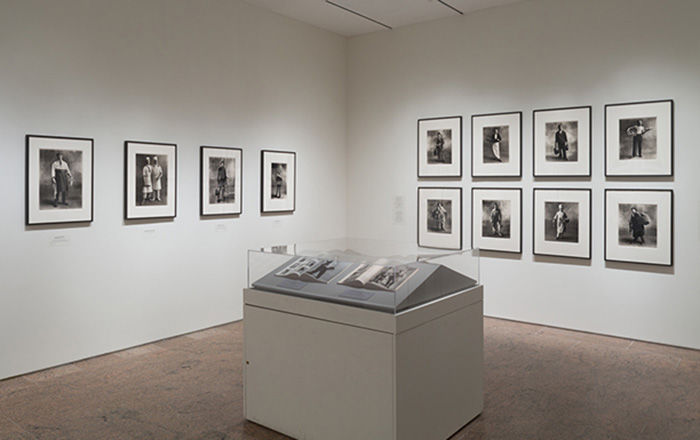Mary Constable and Her Brother
Oscar Gustav Rejlander British, born Sweden
Not on view
Oscar Gustav Rejlander took up the camera in 1853 because he could not support himself from the proceeds of his portrait paintings. Although he photographed nudes, expressive heads, and other subjects for painters to copy, he pursued his own art as well. To that end he concocted elaborate genre scenes and moral allegories that made him famous (and when tastes shifted, infamous), but he also made photographic portraits that have yet to go out of style.
Behind his London house Rejlander built an unusual studio with five oddly shaped, judiciously placed windows that gave him virtual command of his illumination. Like a film director Rejlander posed his sitters informally and obliquely in the filtered light, sparing them the glare and self-conscious interrogation of direct camera confrontation. The freshness and vivacity he thus achieved are evident in this portrait of a brother and sister, gazing as on their future in a glowing hearth. Clasped in affectionate embrace, the well-dressed Constable children had clearly attended that "school of sympathy, tenderness, and loving forgetfulness of self" which was the ideal Victorian family.
Due to rights restrictions, this image cannot be enlarged, viewed at full screen, or downloaded.

